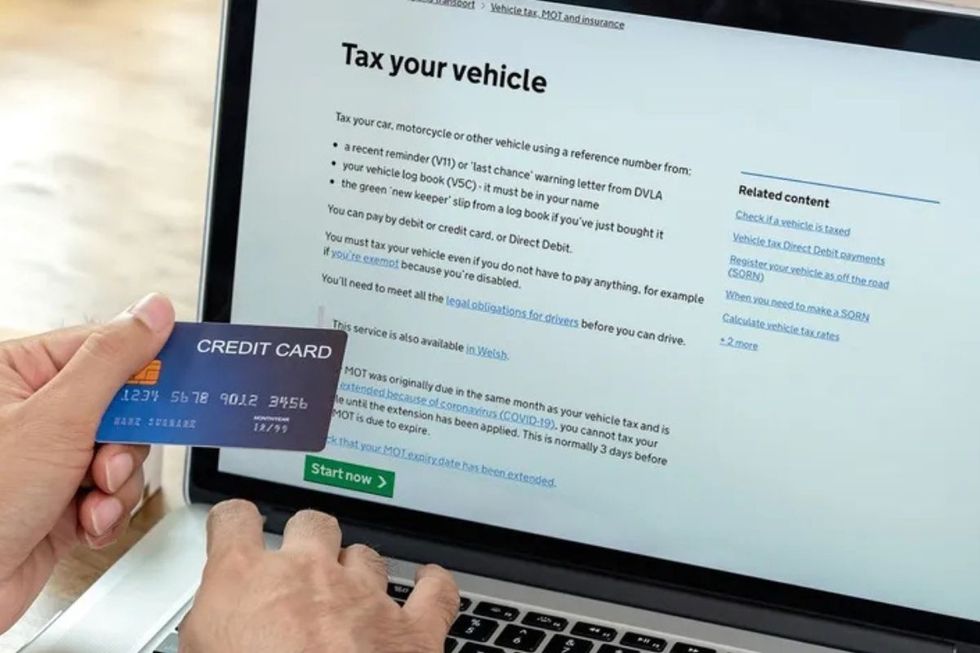WATCH: Chancellor Rachel Reeves outlines new car tax changes
GB NEWS
A number of new car tax changes will be introduced in April next year
Don't Miss
Most Read
Trending on GB News
Drivers are being reminded of new car tax changes set to launch next year which could see their costs double following the Chancellor's Autumn Budget.
At the end of October, Rachel Reeves delivered the first Labour Budget in almost 15 years and unveiled new Government plans to amend motoring policies.
This included additional funding for fixing roads and potholes across the UK, the surprise continued freeze to fuel duty for an extra 12 months and Vehicle Excise Duty (VED) changes.
From April, the Government will uprate the standard VED rates for cars, vans and motorcycles in line with the Retail Price Index (RPI), although this excludes first year rates for cars.
Do you have a story you'd like to share? Get in touch by emailingmotoring@gbnews.uk

Drivers are being reminded about car tax changes taking place next year
X
Budget documents also outlined how double cab pick-up vehicles (DCPUs) with a payload of one tonne or more will be classed as cars for certain tax purposes.
From April 6, 2025, DCPUs will be treated as cars when drivers have the vehicle through a Benefit-in-Kind tax scheme.
The British Vehicle Rental and Leasing Association (BVRLA) has reminded its members of the new car tax changes launching in April.
It stated: "The Chancellor’s Budget in October announced changes to Vehicle Excise Duty and taxation of double-cab pickups, both of which are likely to impact BVRLA members and their customers.
"The BVRLA has updated its factsheets for company and fuel taxation to reflect the latest information.
"Members should also be aware that [there] has been an uplift in press coverage regarding VED, so customers may start enquiring."
Benefit-in-Kind company car tax rates will also be raised in April, with almost all vehicles set to see a one per cent hike for the 2025/26 tax year.
Electric cars will see BiK rates jump from two per cent to three per cent. By the end of the decade, these rates will continue to rise until 2029/30 when it will be nine per cent.
In comparison, the lowest polluting vehicles, including hybrids will face a huge tax rise in 2028/29 when the rate soars to 18 per cent.
The most polluting petrol and diesel vehicles (over 170g/km of CO2) have rates frozen at 37 per cent until 2028/29 when they will have annual rises of one per cent until 2029/30.
Rachel Reeves also outlined plans in the Budget to widen the differentials between zero emission, hybrid and internal combustion engine vehicles.
This will see zero emission cars paying the lowest first year rate at £10 until 2029-30, although owners of more polluting vehicles could be slapped with enormous costs.
LATEST DEVELOPMENTS:
- Drivers issued urgent 'ghost' number plate warning amid rollout of new speed cameras to issue fines
- Mercedes delivers first electric Popemobile as Pope Francis ditches petrol and diesel - 'Special honour'
- HMRC rules impacting petrol, diesel and electric cars introduced this month may lead to 'sticky situation'

Rachel Reeves said she wanted to create a larger gap between EVs and petrol and diesel cars
PAFor all cars that emit more than 76g/km of CO2 and above, rates will double from their current levels. The highest rate - more than 255g/km of CO2 - will see prices rise from £2,745 to £5,490.
A Government spokesperson previously told GB News: "We're committed to delivering greener transport by supporting the transition to electric vehicles.
"We will provide certainty to manufacturers by restoring the 2030 phase-out date for new petrol and diesel cars, and are committed to accelerating the rollout of electric vehicle charging infrastructure. We will set out further details in due course."








